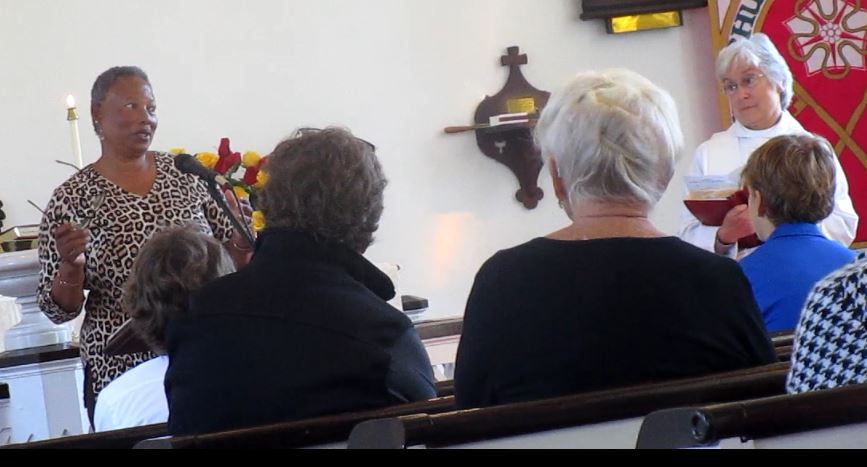I.Theme – Prepare for Christ – The Second coming – Be Prepared !

"Parable of the Wise and Foolish Virgins"
The lectionary readings are here or individually:
Old Testament – Amos 5:18-24
Psalm – Wisdom of Solomon 6:17-20
Epistle –1 Thessalonians 4:13-18
Gospel – Matthew 25:1-13
Amos warns that justice and righteousness, not empty ritual and thoughless offerings are how to prepare. Amos’s words speak warning to the people who desire the day of the Lord, the day of judgment. God warns those who desire the day of judgment, thinking God is on their side, because God will execute justice and it will be darkness, not light, for those who seek it. This passage is a warning to those who are so religious they put being religious above doing the teachings of their religions. God says “I hate, I despise your festivals, and I take no delight in your solemn assemblies” (vs. 21). God does not desire our best religious persona, our best religious face to the public–rather, God desires justice and righteousness (vs. 24). God desires for us to do what our faith teaches us–to lift up the poor and help the oppressed. Do we serve our religion, or do we serve our God? Do we serve a particular religious culture or religious politics, or do we serve God? Do we serve a particular religious image, or do we serve the God who created all of us?
Psalm 70 is a cry for help, a cry for deliverance, a reminder that God desires justice, mercy and righteousness, not religiousness. It is a reminder that we choose to serve God, and that we need to be wary of assuming we are on God’s side. But the plea is for God to remember God’s part of the covenant, too.
The Wisdom readings emphasize we desire wisdom for living now toward our future meeting with Christ and to discover better ways to be prepared. Wisdom encourages us to actively seek wisdom and its rewards
1 Thessalonians 4:13-18 also looks ahead to the “day of the Lord,” this time of the reign of Christ coming to fulfillment on earth. When he wrote it, the contemporary Christians, including Paul, expected Jesus to come again in glory quite soon, certainly within their own lifetimes. These paragraphs address a troublesome point: will the few Christians who die in this short period somehow miss out on the benefits of Jesus’ return. Paul says no (although he doesn’t say it simply), because what God has wrought in the death and resurrection of Jesus is powerful enough to save even those already "fallen asleep."
Paul speaks of the faithful who have died rising with Christ, and those who are left being taken up to be with Christ, meeting in the air. It is a beautiful image, and we are reminded in Paul’s day of the belief that heaven was in the sky, the earth was flat and the land of the dead was below (Sheol or Hades). The language loses no beauty even with our greater understanding of the cosmos–something beautiful will happen when Christ comes into our lives in a new way.
Matthew 25:1-13 is the parable of the Ten Bridesmaids. This begins a three-parable series in the Gospel of Matthew, the last three parables Jesus tells before he is betrayed. These parables look to the coming reign of God–it has already begun, but it has yet to be fulfilled.
Jesus tells a story about a party of ten bridesmaids or torchbearers for a procession,chosen to participate in a wedding. Each of the ten virgins is carrying a lamp or torch as they await the coming of the bridegroom, which they expect at some time during the night. Five of the virgins are wise and have brought oil for their lamps. Five are foolish and have only brought their lamps.
At midnight, all the virgins hear the call to come out to meet the bridegroom. Realising their lamps have gone out, the foolish virgins ask the wise ones for oil, but they refuse, saying that there will certainly not be enough for them to share. While the foolish virgins are away trying to get more oil, the bridegroom arrives. The wise virgins then accompany him to the celebration. The others arrive too late and are excluded.
Each of the wise bridesmaids has made her preparation; she is prepared spiritually but preparedness cannot be transferred to others, so their refusal to give oil to the foolish bridesmaids may be intended to show that each one of us is expected to make our own preparation – by living a godly, ethical life. Two surprising events, the door being shut (v. 10) and the failing to recognize the foolish bridesmaids (v. 12), are probably another way of saying that the unprepared will be refused entry to the Kingdom – just as the wicked servant will be punished. We are to be prepared at all times for the end of the age, the Second Coming of Christ
“The Second Coming of Christ is the medicine our condition especially needs” – C. S. Lewis.z
Read more


